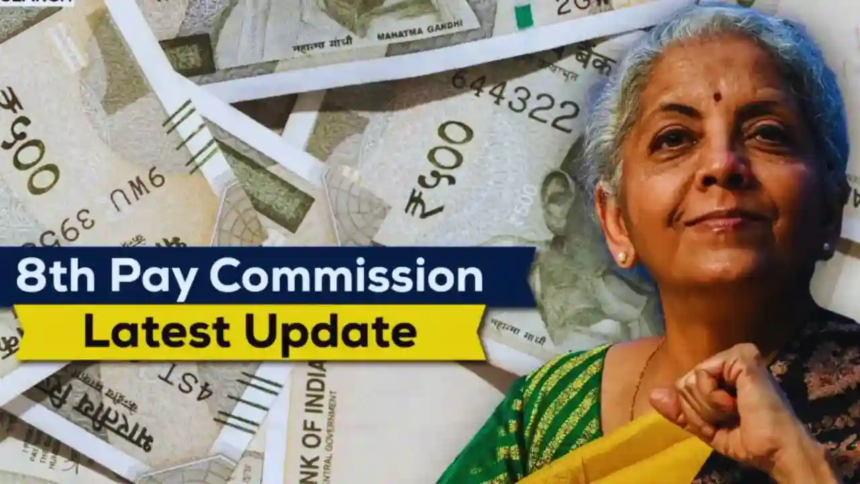The Union Cabinet has given the green light to the 8th Pay Commission, marking a significant milestone for Central government employees. Announced by Union Minister Ashwini Vaishnaw on Thursday, January 16, this decision is poised to bring about notable salary hikes for government workers across the nation.
What is the 8th Pay Commission?
The Pay Commission is a crucial body established by the Indian government to review and recommend changes to the salaries of government employees. The 8th iteration aims to ensure that salaries remain competitive and fair, reflecting the evolving economic landscape.
Why Now? Timing Ahead of Budget 2025
Approving the 8th Pay Commission just days before the Budget 2025 underscores the government’s commitment to its employees. This strategic timing allows for a smooth integration of the recommended changes into the upcoming budgetary allocations.
Key Highlights of the 8th Pay Commission
- Salary Revisions: Central government employees can expect a considerable increase in their salaries.
- Pension Adjustments: Enhancements in pension schemes to provide better post-retirement benefits.
- Allowances and Benefits: Revisions in various allowances to match the current cost of living.
Cabinet’s Role in Approval
The decision was solidified during a Cabinet meeting chaired by Prime Minister Narendra Modi. Under the leadership of I&B Minister Ashwini Vaishnaw, the Cabinet deliberated extensively before endorsing the Pay Commission’s recommendations.
Impact on Central Government Employees
For millions of Central government employees, this approval means:
- Financial Stability: Enhanced salaries provide greater financial security.
- Increased Morale: Recognition of their service through better compensation boosts morale.
- Improved Living Standards: Higher incomes translate to better living conditions and opportunities.
Implementation Timeline: What to Expect
While the approval is a significant step, the exact date for the establishment of the 8th Pay Commission remains undisclosed. However, employees can anticipate:
- Phased Implementation: Gradual rollout of salary revisions to ensure smooth transitions.
- Transparent Communication: Regular updates from the government regarding timelines and procedures.
Reactions from Central Government Employees
The news has been met with widespread enthusiasm among Central government employees. Many view this as a long-overdue acknowledgment of their hard work and dedication.
Economic Implications of the Pay Hike
A salary hike for government employees can have broader economic implications:
- Boost to Consumer Spending: Increased incomes can lead to higher consumer spending, stimulating the economy.
- Inflation Considerations: While beneficial, the government must balance pay hikes to prevent undue inflationary pressures.
Comparison with Previous Pay Commissions
Comparing the 8th Pay Commission with its predecessors reveals:
- Greater Increases: More substantial salary hikes reflecting current economic conditions.
- Comprehensive Benefits: Enhanced focus on pensions and allowances alongside base salaries.
- Modernization Efforts: Incorporation of contemporary economic indicators in salary structuring.
Challenges Ahead
Implementing the 8th Pay Commission is not without challenges:
- Budgetary Constraints: Ensuring that the budget can accommodate the increased expenditure.
- Equitable Distribution: Making sure that all departments and roles receive fair compensation adjustments.
- Managing Inflation: Balancing salary hikes to avoid triggering excessive inflation.
Government’s Commitment to Employees
This move reaffirms the government’s dedication to its workforce. By prioritizing employee welfare, the administration aims to foster a motivated and efficient public service sector.
Future Prospects: Beyond Salary Revisions
Looking ahead, the 8th Pay Commission could pave the way for:
- Further Reforms: Potential additional reforms in employee benefits and working conditions.
- Digital Integration: Leveraging technology to streamline salary distributions and benefits management.
- Enhanced Training Programs: Investing in employee development to match the improved compensation.
Read More: UCO Bank LBO Recruitment 2025: Apply for 250 Local Bank Officer Posts
Conclusion
The approval of the 8th Pay Commission marks a pivotal moment for Central government employees, promising enhanced salaries and benefits. As the implementation unfolds, the positive ripple effects on the economy and employee morale are eagerly anticipated. This decisive action by the Union Cabinet not only acknowledges the invaluable contributions of government workers but also sets the stage for a more prosperous and motivated public service sector.










